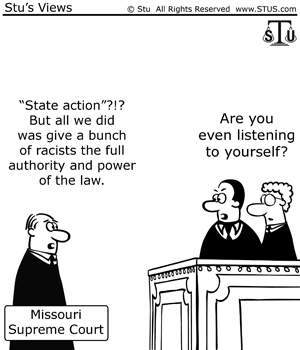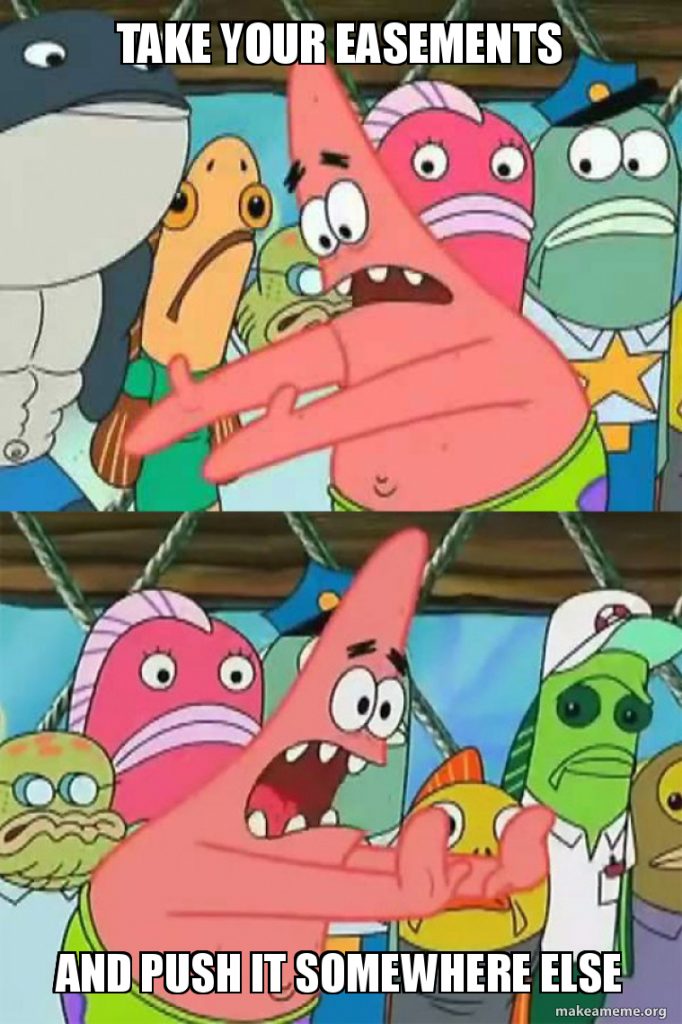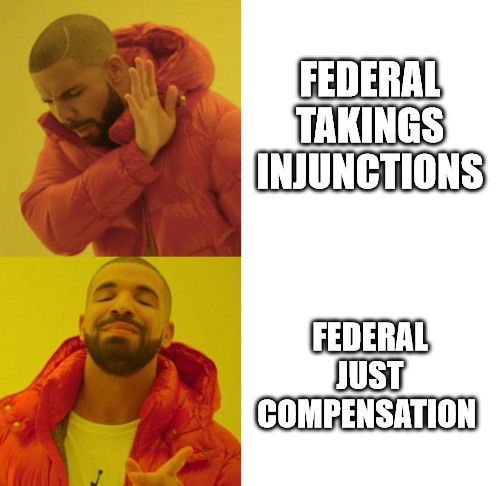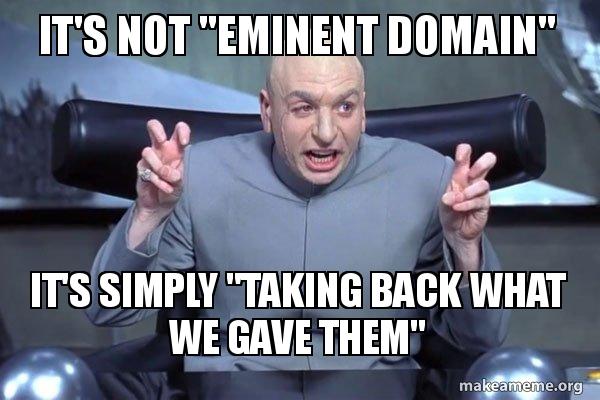Property Law

Latest
Property Law
Reviews
Cedar Point Nursery v. Hassid
In the case of Cedar Point Nursery v. Hassid (2021), the taking doctrine was modified, redefining permanent taking. This now mandates the government to provide just compensation for allowing union workers on private land to monitor migrant workers for three hours daily.
Read More
Latest
Law
Property Law
Reviews
Baker v. Wheeton
If you love someone, give them a future interest in fee simple in an estate. That being said, Baker v. Wheeton (1972) showed a husband did not love his wife.
Read More
Latest
Property Law
Reviews
Hadacheck v. Sebastian
Although bad for business and not a taking of property under the 5th Amendment’s Takings Clause of the Constitution, Hadacheck v. Sebastian (1915) said California aka Los Angeles, under its police power to regulate health, could shut down a brick business due to being declared a common law nuisance.
Read More
Latest
Property Law
Reviews
Shelley v. Kramer
When it comes to racially restrictive covenants, Shelley v. Kramer (1948) saw the Supreme Court enforce a racial restrictive covenant, even though it was closer to an equitable servitude.
Read More
Latest
Property Law
Willard vs the First Church of Christ, Scientist, Pacifica
When it comes to old feudal rules regarding common-law easements, Willard vs the First Church of Christ, Scientist, Pacifica (1972) adopted the new California rule on an easement engross.
Read More
Latest
Property Law
Reviews
Loretto vs Teleprompter Manhattan CATV Corporation
If cable company wires are installed on your property, Loretto v. Teleprompter Manhattan CATV Corp. (1982) said that is a regulatory taking under the meaning of the Taking Clause of the US Constitution.
Read More
Latest
Property Law
Reviews
Kelo vs City of New London
When it comes to economically distressed cities, Kelo vs City of New London (2005) said cities could use their police power, particularly the eminent domain power, to demolish a Holliday Inn to make a Mandalay Hotel, if it increased the tax revenues and was a public use, for example.
Read More
Latest
Property Law
Reviews
Village of Belle Terre v. Boraas
When came to people living together or inhabiting a home, Village of Belle Terre v. Boraas (1974) said only families.
Read More
Latest
Property Law
Reviews
State ex rel Stoyanoff v. Berkeley
When it came to aesthetics, State ex rel Stoyanoff v. Berkeley (1970) said an unelected zoning board can decide how your house must look, even if it’s shaped like a UFO or a regular house.
Read More
Latest
Law
Property Law
Village of Euclid v. Ambler Realty Co.
When comes to how you can use your property, Village of Euclid v. Ambler Realty Co. (1926) held that a zoning board can tell you how to use your property- or get out.
Read More